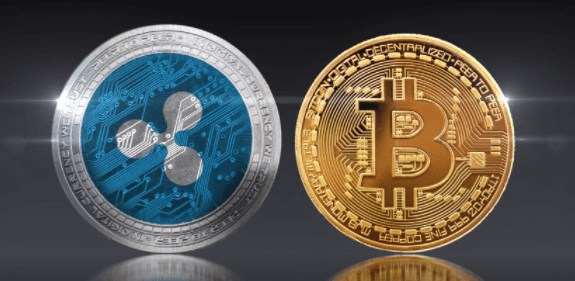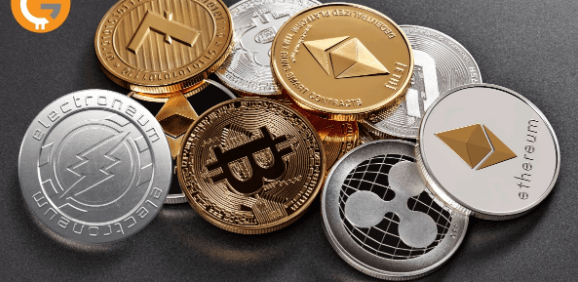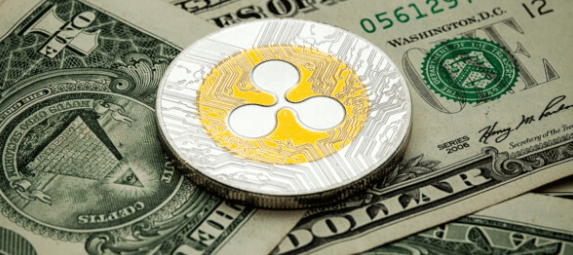Ripple is essentially a blockchain-based digital network that facilitates payments, remittances, and currency exchange among financial institutions. The idea behind it was to create a method to transfer assets in an efficient, fast, and non-expensive way.
These transactions are safer and free from any third-party intervention. Hence, considered to be faster and seamless. Ripple has developed its own cryptocurrency XRP.
Ripple and Bitcoin: a comparison

- Technology: The concept of Bitcoin is based on blockchain technology which functions like a shared public ledger where the transactions, once verified, are stored, and the miners solve complex mathematical problems to compute the hash for the next block. The functioning of Ripple is backed by a consensus mechanism and network of validators who perform the verification. Ripple selects these validating servers.
- Uses: Bitcoin is used as a digital currency for trading and investment purposes. Like fiat currencies, you can use them to buy goods and services. Ripple is a network that allows the transfer of payments, currency exchange, and payment for goods and services as remittances. For the transaction to be quicker and cost-effective, it uses its cryptocurrency, XRP.
- Supply: The total number of Bitcoins has been capped at 21 million, of which more than 18 million Bitcoins have already been mined and are in the market. The remaining 3 million will be created as and when the miners can decode the hash for the next block in the blockchain. On the contrary, at the time of its launch, Ripple minted its complete supply of 100 billion XRPs, out of which more than 45 billion is already in circulation.
- Control over its cryptocurrency: The minting or issuing of Bitcoins is not regulated by any authority. It is mined on successfully calculating the complex mathematical puzzle presented by its algorithm. While Ripple, the company, has complete control over issuing its own cryptocurrency, XRP, into the market. Ripple still holds a majority of XRPs.
- Speed: Bitcoin was created as an alternate currency that could be used for transactions between any two persons, anywhere in the world, without the intervention of governments and financial institutions. It attempted to transcend boundaries and barriers in the execution of transactions. It takes 10 minutes on average for a transaction to be completed. Ripple has created its network specifically for the faster transfer of funds, and to make the process even fast, the company developed its own currency. Speed of transactions was a priority for Ripple. Transactions take place within seconds here.
Litecoin was launched in 2011, and according to its creator Charlie Lee, this cryptocurrency is the “lite version of Bitcoin”, hence the name.
Since it was created just two years after the very first cryptocurrency, Bitcoin, it has been modeled on Bitcoin, which at that time was its only source of reference.
Litecoin is very similar to Bitcoin because it is based on blockchain technology and the process of mining through which new Litecoin is created.
Similarities & Differences between Litecoin and Bitcoin

- The transaction process and storage of Litecoin and Bitcoin are the same. The cryptocurrencies can be traded through exchanges and trading apps like crypto revolt and stored in wallets.
- Total number: Both the cryptocurrencies have a limited supply beyond which they cannot be mined. While the limit of Bitcoin has been capped at 21 million, Litecoin has a maximum supply of 84 million.
- Transaction time: The average transaction time for Bitcoin is 10 minutes, whereas for Litecoin, for a transaction to be completed, it takes 2.5 minutes.
- Algorithm for mining: Bitcoin uses the SHA-256 algorithm. Litecoin uses the newer Scrypt algorithm.
Conclusion
Bitcoin has triggered the creation of many cryptocurrencies since its launch. Each cryptocurrency has tried to improve upon the concept and technology of Bitcoin. Ripple has had its share of success but more as a networking system that uses a cryptocurrency. Litecoin, too, has been successful to some extent in proving to be a competitor to Bitcoin.

Despite so many cryptocurrencies on offer, the term “cryptocurrency” will always be synonymous with Bitcoin, the pioneer of all cryptocurrencies that has single-handedly revolutionized the digital market. And owing to the growing acceptance of this concept, we are witnessing a mass increase in its investment.















